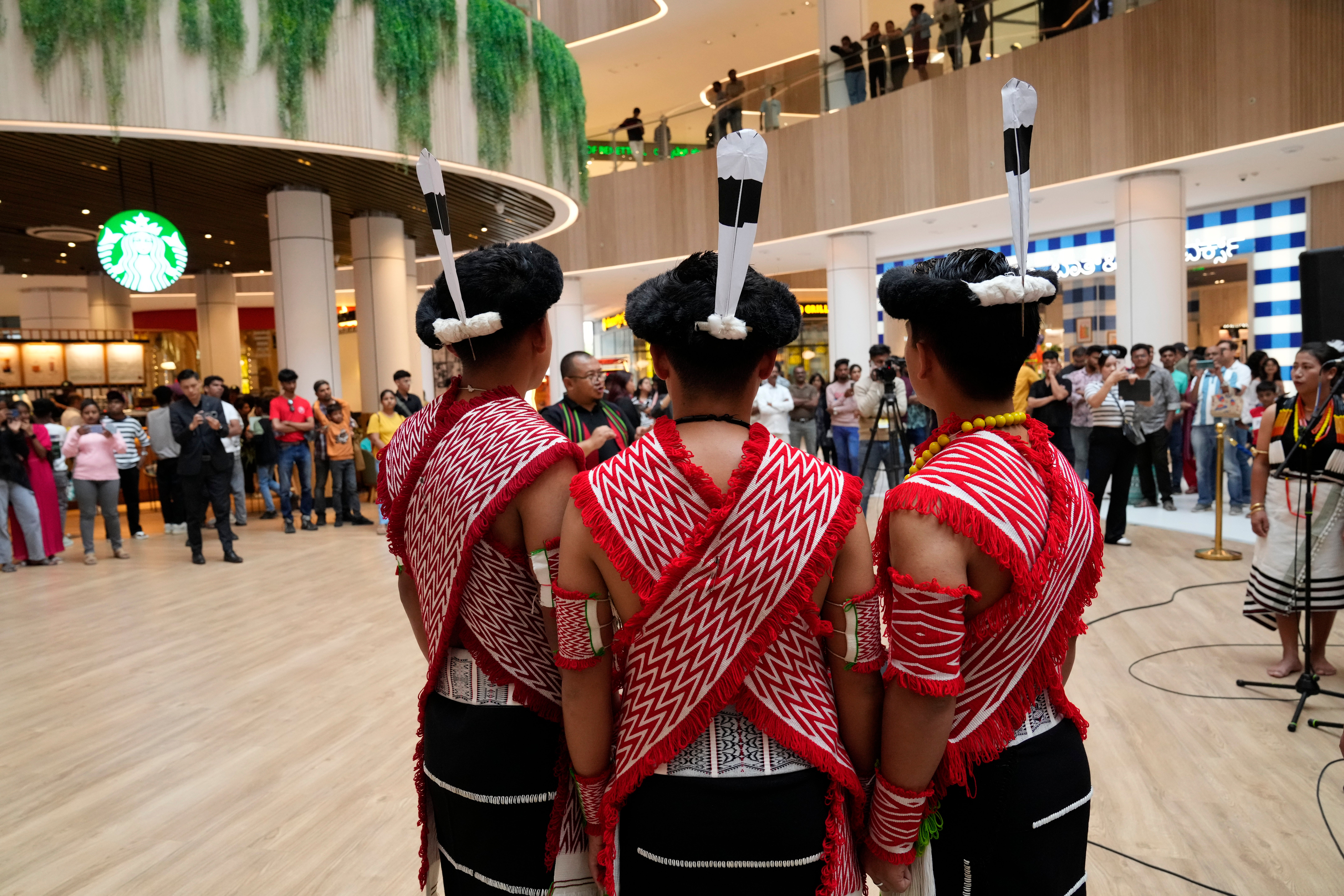Oxfordshire auction house halts sale of horned human skull after outcry from tribal community
Nagaland’s chief minister calls the auction an act of ‘continued colonial violence upon’ Indigenous people

A human skull originating from the Indian state of Nagaland has been withdrawn from sale at an auction in the UK following a backlash led by the country’s tribal community.
A "19th-century horned Naga human skull" was among more than 20 items involving human remains listed for a one-day sale on Wednesday by the Swan Fine Art auction house in Tetsworth, Oxfordshire.
The auction house withdrew the skull listing following a backlash led by the Forum for Naga Reconciliation (FNR), a group of church leaders and civil society members in the northeast Indian state.
The FNR condemned what it described as the dehumanising practice of selling Indigenous ancestral remains as items for “curious collectors”, and the case was picked up by Nagaland’s chief minister, who urged the Indian government to intervene.
The ancestral skull was listed as a part of the auction titled "The Curious Collector Sale" along with antiquarian books, manuscripts, paintings, film props, furnitures and ceramics.
The horned skull was given a guide price of £3,500 (Rs 384,000) to £4,000 (Rs439,000). Its provenance was traced to the Ex Francios Coppens Collection from Belgium.
"The auction highlights the impunity that descendants of European colonisers enjoy as they perpetuate a racist, colonial and violent depiction of Naga people," the FNR said in a statement.
The auction came at a time when Indigenous communities across the world are pushing for former colonial nations to repatriate ancestral human remains.
"Can you imagine: in the 21st century there are bans on the sale of birds and animals and reptiles – as [there] should [be] – but not a ban on human remains," Dr Dolly Kikon, a Naga anthropologist and professor at the University of California, told The Independent, adding that the sale was stopped just hours before the auction was due to begin.
"There has to be a change at the level of policy so that these human remains don't resurface elsewhere. The dehumanising will continue until and unless we really put a stop to it legally and there's an international ban on such things.”
Nagaland’s chief minister Neiphiu Rio wrote to foreign minister Subrahmanyam Jaishankar, urging him to raise the matter with the British High Commission in New Delhi.
"You will agree that the human remains of any deceased person belongs to those people and their land," Mr Rio wrote.
He said the sale was an act of "continued colonial violence upon" Indigenous people.
The FNR said the repatriation of Naga ancestral human remains should be made “a priority”.
Swan Fine Art has also withdrawn items involving human remains from the Indigenous communities of Papua New Guinea, Nigeria, Congo and Melawi that were included in the collection for sale on the auction house’s website.
The Independent has reached out to Swan Fine Art for comment.
In 2020, the Pitt Rivers Museum in Oxford removed its collection of shrunken heads and other human remains as a part of a “decolonisation process” after 80 years of displaying the remains. The museum said the decision was taken to address the museum’s problematic past.
Dr Kikon is a member of the museum’s Recover, Restore and Decolonise team, which says the process of examining the Pitt Rivers collection and considering items for repatriation “may take anywhere between eight to 15 years”.
The group says there are 214 pieces of Naga ancestral remains, which includes objects made with components such as human hair or bone, in the care of the museum.
Dr Kikon said there was a need for a community-first approach to the entire process. “In all repatriation cases around the world, it’s the communities who feel the need to heal and put remains to rest and it’s the communities who come together.”
Laura Van Broekhoven, director of the Pitt Rivers Museum, wrote on X that it was “outrageous to auction ancestral and human remains”.
“Completely unethical. Human remains from Naga, Shuar, Dayak, Solomon Islands and also Nigeria, Congo, Benin, PNG, … Please Stop this Auction,” she wrote.
Join our commenting forum
Join thought-provoking conversations, follow other Independent readers and see their replies
Comments
Bookmark popover
Removed from bookmarks